




In this ever-changing information-centric world, data has enormous hidden value, which can be unlocked by advanced engineering techniques towards creating impact to society.





Through data generation and measurement, data transmission and networking to connect people and objects, coupled with advanced data processing and analytics, data can be enhanced into forward-looking information and predictions. Together with the added value of network security, we can realize many useful Internet and artificial intelligence applications, and achieve the goal of a smart world.
The study of Information Engineering encompasses elements from Computer Science, Electronic Engineering, Data Science, Telecommunications, Internet-of-Things and Artificial Intelligence. This multi-disciplinary nature of Information Engineering is what makes our programme unique, challenging and rewarding.
Our graduates are equipped with solid engineering knowledge and analytical problem-solving skills to innovate creative solutions for important practical problems. They have embarked on successful careers in various industries and around 10% of them have furthered their graduate studies in top schools worldwide.
Come join us and develop a smarter world!
 Prof. Calvin C.K. CHAN 2023
Prof. Calvin C.K. CHAN 2023





The Faculty of Engineering is established in 1991 by Professor Sir Charles Kao, former ViceChancellor of CUHK and Godfather of Fibre Optics Communications. It is a hub of cuttingedge research and technology transfer as well as an effective training ground for engineers. The Faculty of Engineering is committed to the education of future leaders in engineering, the pursuit of knowledge at the frontier of modern technology, and the application of technology to meet societal and human needs.




Established in 1989
Our mission is to be an internationally recognized first-class research institution in information engineering, and to be the top regional research engineering institution with consistent scholarly output in prestigious journals and conferences. We also aim to nurture future leaders in the field of information communication technology (ICT) and telecommunications industries through our research and education agendas.

Prof. Calvin C.K. CHAN (2017 - 2023)






Prof. Sean X.O. TANG (2015 - 2017)

Prof. Dah-ming CHIU (2009 - 2015)
Prof. Soung C. LIEW (2006 - 2009)
Prof. Lian K. CHEN (2004 - 2006)


Prof. Wing S. WONG (1995 - 2003)
Prof. Peter T.S. YUM (1993 - 1995)
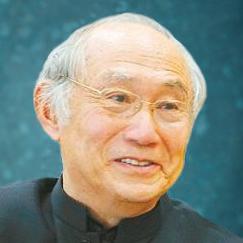
Prof. C.P. KWONG (1992 - 1993)

Prof. Omar WING (1991 - 1992)
Prof. George FAN (1989 - 1991)
Developed the first medical imaging network (MAGNET) system in South-East Asia, connecting hospitals with optical fibers for image transmission and remote diagnosis applications.



Set up of the first Internet connection in Hong Kong. CUHK later became the center of Hong Kong Internet Exchange (HKIX) - the hub linking all ISPs in Hong Kong.
Set up the Electronic News Media and Publishing Consortium (ENMPC) to develop local media and publishing industries into electronic information providers.


Led the first ATM network testbed connecting CUHK, HKUST, and HKU for collaborative R&D in high-speed networking. Established Hong Kong School Net to bring Internet to primary and secondary schools; and Hong Kong Cyber Campus to link all universities and schools in Hong Kong, and received an IT Application Award in 1998.
Established by Prof. Sir Charles K. KAO. The first Information Engineering (IE) department in Hong Kong offering BEng, MPhil, and PhD programmes. The BEng programme was the first IE programme receiving a five-year-long full accreditation by HKIE in 1995.

Established the Area of Excellence in Information Technology (AoE-in-IT) in Hong Kong in collaboration with HKU and HKUST. Launched the Information Technology Entrepreneur Programme (ITEP) to help young people to start technology business.

2000
Established MobiTeC (Mobile Technologies Center) to lead the R&D for mobile industries in Hong Kong. Established the Center for Advanced Research in Photonics under Faculty of Engineering.




Developed the Hong Kong Education City in collaboration with the Education Department of Hong Kong.
2003
2006
Received University’s strategic funding support under the area of Information Science, one of the five major areas of development in the scheme of Focused Investments
CUHK has been ranked as one of the Top 10 worldwide most impactful research institutions in the area of telecommunications (a primary research area of Information Engineering Department) by Thomson Reuters.

2015
The 30th Anniversary of the Department of Information Engineering
Launched the Double Degree Programme in Mathematics and Information Engineering (MAIE).
2007
TOP10
2012
2010
Established the Institute of Network Coding at CUHK under the Areas of Excellence (AoE) Scheme funded by the University Grants Committee.

Launched the Bachelor of Science Programme in Mathematics and Information Engineering Programme (MIEG).
2019
�� dept@ie.cuhk.edu.hk
�� https://www.ie.cuhk.edu.hk/ierg
Information engineering encompasses Telecommunications, Networking, Information Processing and Cyber Security - all important and fast-growing industries in today’s Information Age. “Tele” is the key to achieving something once considered impossible - we now have teleconferencing, telemedicine and tele-education. Networking is transforming modern society, and the ability to connect computers, people and businesses is generating many new opportunities, such as eCommerce, eLogistics and eLearning. Information processing helps us to understand content, text, speech and even multimedia and virtual reality. With our ever-increasing reliance on communication and networking technologies for mission-critical applications, the mastering and management of cyber security has also become an essential requirement for most enterprises and organizations.
(retitling of streams with effect from 2023-24)
Big Data: Systems and Applications

Information Theory
Applied Cryptography

Cloud Computing Security

and Applications
Multimedia Coding and Processing
Building Scalable Internet-based Services

Emerging Technologies in Information Engineering


Probabilistic Models & Inference Algorithms for Machine Learning
Algorithms & Realization of Internet of Things Systems

Product Design and Development
Social Media & Human Information Interaction
IT Innovation and Entrepreneurship
Web-scale Information Analytics
Reinforcement Learning
And many more!


And

JUPAS (code: JS4446) (starts from 2023-24 admission)
Admission is based on the Best 5 HKDSE subject results with subject weighting.
Non-JUPAS (Local)
For local applicants with other qualifications such as Associate Degree / Higher Diploma, HKALE, GCE, IB, SAT/ AP and other overseas qualifications).

International
For non-local students who require a student visa to study in Hong Kong.
Note: Both Non-JUPAS and International applicants may apply for “Admission with Advanced Standing” if he/she meets specific requirements on relevant qualifications (including GCE-AL, International-AL, IB, Cambridge Pre-U, HKALE, Associate Degree/ Higher Diploma). Applications from this two schemes will be considered on a case by case basis.
��
�� http://www.mie.cuhk.edu.hk
This programme is offered jointly by the Departments of Mathematics and Information Engineering to provide students with diversified and advanced knowledge in the interdisciplinary study of mathematics and engineering. This demanding and boutique programme aims at educating a new generation of cutting-edge information scientists who are well-trained in formal mathematics as well as the basics of algorithm design, communications, and computer networks.

The programme places strong emphasis on research and encourages independent studies under the supervision of professors from both departments. Students will have opportunities to take up research work during their later years of study and a significant fraction of graduates from this small program get to pursue graduate studies at top schools worldwide.
Random Processes
Introduction to Topology
Differential Geometry
Probabilistic Models & Inference
Reinforcement Learning
Channel Coding and Modulation
Information Theory
Applied Cryptography
Digital Forensics
Cloud Computing Security
Algorithms for Machine Learning
Formal Languages and Automata Theory
Algorithms & Realization of Internet of Things Systems
Building Scalable Internet-based Services

BSc (Hons) in Mathematics and Information Engineering (MIEG)
Major Requirements
Year 1 Faculty Package
Linear Algebra, Foundations of Modern Mathematics Calculus and programming classes


Year 2 Discrete Structures and Probability, Fourier Analysis, Multivariable Calculus Basic Analog and Digital Circuits Systems Programming, Data Structures, Communication Systems
Year 3 Design and Analysis of Algorithms, Information and Software Engineering Practice, Computer Networks Real Analysis, Complex Analysis, Algebra

Year 4 Final Year Project I and II and Major Electives
Students must complete at least 126 units to fulfill graduation requirements
Major Requirement (87 units) + University Core Requirement (39 units) = 126 units
JUPAS (code: JS4733) (starts from 2023-24 admission)
Admission is based on the 4 Core and 2 Electives
HKDSE results with subject weighting.
Non-JUPAS (Local)
For local applicants with other qualifications such as Associate Degree / Higher Diploma, HKALE, GCE, IB, SAT/ AP and other overseas qualifications).
International
For non-local students who require a student visa to study in Hong Kong.
Note: Both Non-JUPAS and International applicants may apply for “Admission with Advanced Standing” if he/she meets specific requirements on relevant qualifications (including GCE-AL, International-AL, IB, Cambridge Pre-U, HKALE, Associate Degree/ Higher Diploma). Applications from this two schemes will be considered on a case by case basis.

�� gradinfo@ie.cuhk.edu.hk

The Division of Information Engineering seeks outstanding research students aspiring to make high impact innovations and fundamental discoveries in information engineering. Our professors are worldclass researchers. Our laboratories are well-equipped. Our courses cover the forefronts of information engineering. Students explore various topics in the areas of communications, networking, information processing, and security. We provide an environment conducive to original theoretical, experimental, and application research in information engineering.
Streams
MPhil Stream (2 years)
PhD Stream (3-4 years)
AI, Big Data and Multimedia Processing
Cyber-security and Applied Cryptography
Information and Coding Theory
Internet Engineering and Networked Applications
Optical Communications and Networking
(For general reference only. The students should refer to the Postgraduate Student Handbook for details of the requirements.)
Wireless Communications and Networking
Please visit the division homepage for more information. Contact Us
�� +852 3943-1127
�� gradinfo@ie.cuhk.edu.hk
�� https://www.ie.cuhk.edu.hk/mphil-phd




9 Room 834, Ho Sin Hang Engineering Building
The Chinese University of Hong Kong.






Established in 1997, the Master of Science in Information Engineering (MScIE) programme is an elite taught-postgraduate programme offered by the Department of Information Engineering, CUHK. Extending the Department’s mission of “Building a Connected, Secure and Smart Society in the Age of Digital Transformation”, MScIE provides a flexible curriculum, holistic learning experience, and extensive alumni network to its students. (with


Students may also select the courses in either Option (a) OR (b), subject to approval of the Programme.
• Full-time (1 year)
• Part-time (2 years)

(with effect from 2023-24)
Full-time (1 year)
Pre-term (Aug 2023)
�� Term 2 (Dec 2023Mar 2024)
Term 3 (Mar - Jun 2024) Curriculum structure
4 required courses (12 credits)
3 optional core courses (9 credits)
3 elective courses (9 credits)

• Strategic Information Systems
• Statistical Analysis
• Business Intelligence Techniques and Applications
• Database and Big Data Management
• Project Management
• Advanced Information Systems Practicum
• Fintech and Its Applications
• Enterprise Resource Planning


• Blockchain and Its Application
• Selected Topics of Information and Technology Management

• Software Design and Development
• Data Communications and Networking
• Cryptography, Information Security and Privacy
• Data Science in Practice
• Internet of Thing and Smart Applications
• Emerging Communication Technologies
• Technology Strategy
• Social Media Analytics
• Emerging Topics in Information Engineering
• Any ONE 3-unit IEMS-coded course offered by MSc Programme in Information Engineering, subject to seat availability and approval by respective Programme Directors.
Business School / Faculty of Engineering
 Sherman S.M. CHOW Co-Director
Sherman S.M. CHOW Co-Director

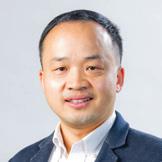 Department of Information Engineering
Co-Director
Department of Information Engineering
Co-Director
Department of Decision Sciences and Managerial Economics
• You may take any course up to 3 units offered by other Master’s programmes under CUHK Business School or Faculty of Engineering, subject to seat availability and approval by respective Programme Directors.
IERG1000 Introduction of Information Engineering
IERG1080 Introduction to Python for Engineering Applications
IERG1810 Electronic Circuit Design Laboratory
IERG2051 Signals and Systems
IERG2060 Basic Analog and Digital Circuits
IERG2080 Introduction to Systems Programming
IERG2310 Principles of Communication Systems
IERG2470 Probability Models and Applications
IERG3010 Digital Communications
IERG3050 Simulation and Statistical Analysis
IERG3060 Microcontrollers and Embedded Systems
IERG3080 Information and Software Engineering Practice
IERG3280 Networks: Technology, Economics, and Social Interactions
IERG3300 Introduction to Stochastic Processes
IERG3310 Computer Networks
IERG3320 Social Media and Human Information Interaction
IERG3800 Information Infrastructure Design Lab
IERG3810 Microcontrollers and Embedded System Laboratory
IERG3820 Communications Laboratory
IERG3830 Product Design and Development
IERG3840 Web Application Development Project
IERG3842 Mobile Network Application Development Project

IERG4004 E-payment Systems and Cryptocurrency Technologies
IERG4030 Optical Communications
IERG4060 Real-time Embedded Systems
IERG4080 Building Scalable Internet-based Services
IERG4090 Networking Protocols and Systems
IERG4100 Wireless Communication Systems
IERG4110 Hands-on Wireless Communication
IERG4120 Functional Programming
IERG4130 Introduction to Cyber Security
IERG4150 Introduction to Cryptography
IERG4160 Image and Video Processing
IERG4180 Network Software Design and Programming
IERG4190 Multimedia Coding and Processing
IERG4210 Web Programming and Security
IERG4220 Secure Software Engineering
IERG4230 Introduction to Internet of Things
IERG4300 Web-scale Information Analytics
IERG4320 Data Science in Practice
IERG4330 Programming Big Data Systems
IERG4340 Emerging Technologies in Information Engineering
IERG4350 Cloud Computing Security
IERG4360 Blockchain and Applications
IERG4831 Networking Laboratory I
IERG4841 Networking Laboratory II
IERG4851 Cyber Security Laboratory
IERG4998 Final Year Project I
IERG4999 Final Year Project II
IERG5020 Telecommunication Switching and Network Systems
IERG5040 Lightwave System Technologies
IERG5090 Advanced Networking Protocols and Systems
IERG5100 Advanced Wireless Communications
IERG5110 Signal Processing in Wireless Communications and Sensing
IERG5130 Probabilistic Models and Inference Algorithms for Machine Learning

IERG5140 Lightwave Networks
IERG5154 Information Theory
IERG5200 Channel Coding and Modulation
IERG5230 Algorithms and Realization of Internet of Things Systems
IERG5240 Applied Cryptography
IERG5254 Network Information Theory
IERG5280 Mobile Networking
IERG5290 Network Coding Theory
IERG5300 Random Processes
IERG5310 Security and Privacy in Cyber Systems
IERG5320 Digital Forensics
IERG5330 Network Economics
IERG5340 IT Innovation and Entrepreneurship
IERG5350 Reinforcement Learning
IERG5360 Program Representation, Modeling and Understanding for Software Security

IERG5380 Quantum Information Processing
IERG5400 Theory of Probability
IERG5590 Advanced Topics in Blockchain
IERG6120 Advanced Topics in Information Engineering I
IERG6130 Advanced Topics in Information Engineering II
IERG6154 Network Information Theory
IERG6200 Advanced Topics in Computer Networks
IERG6210 Advanced Topics in Information Processing
IERG6300 Theory of Probability
IEMS5701 Wireless Communication
IEMS5705 Optical Communication and Lightwave Networks
IEMS5707 Multimedia Coding and Applications
IEMS5709 Emerging Topics in Information Engineering
IEMS5710 Cryptography, Information Security & Privacy
IEMS5712 Innovation and Entrepreneurship
IEMS5717 Emerging Communication Technologies
IEMS5718 Web Programming and Internet Security
IEMS5719 Technology Strategy
IEMS5720 Social Networking
IEMS5721 Broadband Access Technologies
IEMS5722 Mobile Network Programming and Distributed Server Architecture
IEMS5723 Social Media Analytics
IEMS5725 Blockchain and Applications
IEMS5726 Data Science in Practice
IEMS5727 Internet of Things and Smart Applications
IEMS5728 Data-center and Cloud-based Networking Technologies
IEMS5730 Big Data Systems and Information Processing
IEMS5731 Software Design and Development (for MSc ISTM only)
IEMS5732 Data Communications and Networking (for MSc ISTM only)
IEMS5780 Building and Deploying Scalable Machine Learning Services
IEMS5910 Advanced Research and Development Project I
IEMS5920 Advanced Research and Development Project II
IEMS5930 Information Engineering Internship














Our Professors are dedicated educators and world-class researchers who obtained their PhD degrees from top universities like MIT, Stanford, Caltech, Columbia, Cornell, ETH Zurich, as well as CUHK. Many of them have extensive industrial experience with leading institutions world-wide before joining the department. They are authors of seminal and award-winning publications, holding key patents for innovations in various fields. They maintain strong ties with the local industries and actively contribute to international research communities. Most importantly, our professors love to interact with students and inspire them to become topnotch researchers, engineers, and leaders. In total, there are 11 IEEE Fellows in IE Department - 6 from our full-time professors, and 5 from our emeritus professors.















�� ckchan@ie.cuhk.edu.hk
�� https://www.ie.cuhk.edu.hk/ckchan


Prof. Chan received his BEng, MPhil and PhD degrees from the Chinese University of Hong Kong, all in Information Engineering. Upon graduation, he joined the Department of Electronic Engineering at the City University of Hong Kong as a Research Assistant Professor. At both universities, he worked on high-speed all-optical tunable channel multi-access networks and surveillance techniques for fault identification in various kinds of optical network elements.
In June 1999, he joined Bell Laboratories, Lucent Technologies, Holmdel, NJ, as a Member of Technical Staff where he worked on an optical packet switch fabric with terabit-persecond capacity. In 2001, he served as Senior Optical System Engineer at Jedai Broadband Networks, Inc. in NJ, USA where he worked on the design of optical access networks and optical-wireless systems.
In August 2001, he joined Department of Information Engineering at the Chinese University of Hong Kong and now serves as a Professor. He has served as members of the Technical Program Committees of many international conferences, including OFC/NFOEC, OECC, ICCCAS, Photonic in Switching, APOC, ICOCN, COIN, ICCS, ICCC, ICCT, PGC, ChinaCom, ICAIT, IPOC, etc. He was an Associate Editor for OSA Journal of Optical Networking and IEEE/OSA Journal of Optical Communications and Networking. He served as the Chairman for IEEE Photonics Society Hong Kong Chapter during 2012-2013. Prof. Chan has published more than 200 technical papers in refereed international journals and conferences, two book chapters on passive optical networks and one edited book on optical performance monitoring. He holds two issued US patents.

Adjunct Assistant Professor (SMIEEE, MASEE)
�� yychan@ie.cuhk.edu.hk
�� https://www.ie.cuhk.edu.hk/yychan

Prof. Chan received her BEng, MPhil, MEd and PhD degrees from the Chinese University of Hong Kong. She served as an Assistant Professor in the Department of Information Engineering, CUHK in 2006 – 2007, and as a postdoctoral fellow in Strategic Research Theme in Sciences of Learning, HKU in 2008 – 2011. Prof. Chan possesses a multidisciplinary background in engineering, education, and learning sciences. Her research interests include engineering education, human factors in online social networks, and learning sciences. Rosanna founded the IEEE Education Society Hong Kong Chapter and is the Founding Chair. She had also served as the Deputy Director of the Master of Science in Information Engineering Programme at the department.

Assistant Professor (MIEEE, MACM)
�� sychau@ie.cuhk.edu.hk
�� https://www.ie.cuhk.edu.hk/sychau
Prof. Chau joined the Department of Information Engineering at CUHK as an Assistant Professor in January 2020. He obtained his PhD in Computer Science from Purdue University in August 2019, and has industry R&D experience working for Intel. Prior to joining CUHK. Prof. Chau was a postdoctoral researcher at the CyLab Security & Privacy Institute at Carnegie Mellon University. He received his BSc from The Hong Kong Polytechnic University in 2013.
His research interest is mainly on the (in)security of the design and implementation of cryptographic and network protocols. He and his colleagues have substantial experience in analyzing and breaking protocol implementations, with a specific focus on issues related to semantic correctness. His research has discovered numerous weaknesses in widely deployed software systems, including content delivery apps on Android, as well as cryptographic libraries implementing X.509 certificate validation and RSA signature verification, where many of the discoveries are exploitable and deemed highly severe. He is also very interested in applying reasoning techniques backed by formal logic into solving real-world security and privacy challenges.


�� he.chen@ie.cuhk.edu.hk
�� https://www.ie.cuhk.edu.hk/hchen
Prof. He (Henry) CHEN received a Ph.D. degree in Electrical Engineering from The University of Sydney, Sydney, Australia, in 2015. He was a Research Fellow with the School of Electrical and Information Engineering, The University of Sydney. In July 2019, he joined the Department of Information Engineering at the Chinese University of Hong Kong as a faculty member, where he is now an Assistant Professor. Prof. Chen is now leading the Wireless Internet of Things System research group (http://iiotc.ie.cuhk.edu.hk/) at CUHK.

Prof. Chen’s current research interests are in the field of wireless Internet of Things (IoT) systems, and their applications in various industrial verticals, including manufacturing, logistics, healthcare, and smart city, etc. Prof. Chen is serving on the editorial board of IEEE Transactions on Wireless Communications.
�� lkchen@ie.cuhk.edu.hk
�� https://www.ie.cuhk.edu.hk/lkchen

Prof. Chen received the BSc degree in Electrical Engineering from National Taiwan University in 1983 and the MSc and PhD degree in Electrical Engineering from Columbia University, New York, in 1992. He joined the faculty of the Department of Information Engineering, the Chinese University of Hong Kong and established the Lightwave Communications Laboratory in 1992. He was the Department Chairman in 2004-2006. In 20072013, he was a member of the engineering panel of Hong Kong Government Research Grant Council. He served as the director for the Centre for Advanced Research in Photonics in 20102015. His research includes visible light communication, optical wireless communication, nextgeneration local access networks, transmission systems, optical/electronic signal processing, performance monitoring, and bio-photonics. Prof. Chen has published more than 270 papers in referred international conferences and journals. He is a senior member of IEEE Photonics Society and Communications Society, and a member of OSA. He has served as an associate editor of IEEE Photonics Technology Letters (2005-2011) and OSA/IEEE Journal of Optical Communications and Networking (2012-2015). For his name’s sake (in Chinese), he believes he will continue to engage in research related to Light in the foreseeable future.

Associate Professor (FEAI, MACM, MIACR, MIEEE)
�� smchow@ie.cuhk.edu.hk
�� https://www.ie.cuhk.edu.hk/sherman
Prof. Chow joined the Department of Information Engineering at the Chinese University of Hong Kong in November 2012 and received the Early Career Award 2013/14 from the Hong Kong Research Grants Council. He was a research fellow at the Department of Combinatorics and Optimization, University of Waterloo, a position he commenced after receiving his Ph.D. degree from the Courant Institute of Mathematical Sciences, New York University. During his study, he interned at NTT Research and Development (Tokyo), Microsoft Research (Redmond), and Fuji Xerox Palo Alto Laboratory.

His main interests are in Cryptography, Security, and Privacy, with publications in AsiaCrypt, CCS, EuroCrypt, ITCS, NDSS, S&P, and Usenix Security. He served on the editorial board of IEEE Transactions on Information Forensics and Security (TIFS) for four years, the program committee of AsiaCrypt in a consecutive of six years, and the program committee of 200+ other conferences including CCS, Crypto, CT-RSA, FC, ICDCS, Infocom, PETS, PKC, TheWeb, and Usenix Security. He also co-chaired CANS, ISC, and ProvSec.
He is a European Alliance for Innovation (EAI) Fellow (2019, inaugural), and named as one of the 100 Most Influential Scholars (Security and Privacy, 2018) by ArnetMiner (AMiner).
Vice-Chancellor Associate Professor (SMIEEE)
�� agohari [@] ie.cuhk.edu.hk
�� https://www.ie.cuhk.edu.hk/gohari

Prof. Gohari received his B.Sc. degree from Sharif University, Iran, in 2004 and his Ph.D. degree in electrical engineering from the University of California, Berkeley in 2010. Prof. Gohari received the 2010 Eli Jury Award from UC Berkeley, Department of Electrical Engineering and Computer Sciences, for “outstanding achievement in the area of communication networks,” and the 2009-2010 Bernard Friedman Memorial Prize in Applied Mathematics from UC Berkeley, Department of Mathematics, for “demonstrated ability to do research in applied mathematics.” He also received the Gold Medal from the 41st International Mathematical Olympiad (IMO 2000) and the First Prize from the 9th International Mathematical Competition for University Students (IMC 2002). He received the IEEE Iran Section Young Researcher Award in 2021. Prof. Gohari served as an Associate Editor for the IEEE Transactions on Information Theory from 2018-2021. He was also a finalist for the IEEE Jack Keil Wolf ISIT Student Paper Award for three consecutive years from 2008-2010 during his PhD.



Associate Professor (SMIEEE, MACM)
�� wclau@ie.cuhk.edu.hk
�� https://www.ie.cuhk.edu.hk/wclau

Prof. Lau is an Associate Professor in the Department of Information Engineering and the Director of the Mobile Technologies Centre (MobiTeC) at the Chinese University of Hong Kong.
Prof. Lau received the B.S.(Eng) degree from the University of Hong Kong and the M.S. and Ph.D. degrees in Electrical and Computer Engineering from the University of Texas at Austin. Before returning to academia, Wing worked in the US industry for a decade: He was a Member of Technical Staff with the Performance Analysis Department, Bell Laboratories, Holmdel, New Jersey, where he conducted research in high-speed networking protocols and systems. Prof. Lau also had a stint with Qualcomm, San Diego, California where he designed the architecture and protocols for Next Generation Wireless services and actively contributed to their standardization in the Internet Engineering Task Force (IETF) and 3GPPs.
Prof. Lau holds 19 U.S. patents and his research findings have culminated in more than 120 publications in major international conferences and journals. His recent research interests include: Security and Privacy of Online Social Networks, Single-Sign-On protocols and Mobile Payment Systems; Representation Learning for Temporal Interaction Graphs and its applications; Online Machine Learning algorithms; Resource allocation and Optimization for Cloud Computing/ Big Data Processing Systems; High-capacity Authenticated 2D barcodes and their applications. Prof. Lau is/ has been a Technical Program Committee member of ACM Sigmetrics, MobiHoc, IEEE INFOCOM, SECON, WiOpt, ICC, GLOBECOM, WCNC, VTC and the International Teletraffic Congress, etc. He was also a Guest Editor for the Special Issue on High-speed Network Security of IEEE Journal of Selected Areas in Communications (JSAC). For their work on Single-Sign-On SDK security, Prof. Lau and his team received the 2018 Internet Defense Prize (2nd-runner up) from USENIX and Facebook.
Associate Professor (SMIEEE, MACM)

�� yblee@ie.cuhk.edu.hk
https://www.ie.cuhk.edu.hk/yblee
Prof. Lee received his B.Eng. and Ph.D. degrees from the Chinese University of Hong Kong in 1993 and 1997, respectively. He directs the Multimedia Communications Lab (http://www.mclab.org), focusing on challenges in multimedia communications systems, mobile communications, protocols, and applications. He and his team specialize in tackling research challenges arising from realworld systems, ranging from Internet protocols to adaptive video streaming. His steam works closely with the industry to uncover new research challenges and opportunities for new services and applications. Many of the systems research from MCLab have been adopted and deployed by the industry for production services.

�� ctli@ie.cuhk.edu.hk
�� https://www.ie.cuhk.edu.hk/ctli
Prof. Li received the BSc degree in Mathematics and BEng degree in Information Engineering from The Chinese University of Hong Kong in 2012, and the MSc and PhD degree in Electrical Engineering from Stanford University in 2014 and 2018 respectively. He was a postdoctoral scholar at the Department of Electrical Engineering and Computer Sciences, University of California, Berkeley. He was awarded the 2016 IEEE Jack Keil Wolf ISIT Student Paper Award. He joined the Department of Information Engineering, the Chinese University of Hong Kong in January 2020.
Prof. Li is interested in developing new information-theoretic techniques to address problems in delay-constrained communications, distributed computing and machine learning.

Professor (FIEEE, FIEE, FHKIE, FHKEng)
�� soung@ie.cuhk.edu.hk
�� https://www.ie.cuhk.edu.hk/soung

Prof. Liew received his SB, SM, EE, and PhD degrees from the Massachusetts Institute of Technology. From 1984 to 1988, he was at the MIT Laboratory for Information and Decision Systems, where he investigated Fiber-Optic Communications Networks. From March 1988 to July 1993, he was at Bellcore (now Telcordia), New Jersey, where he engaged in Broadband Network Research. He is currently Professor at the Department of Information Engineering, the Chinese University of Hong Kong (CUHK). He is also currently a Co-Director of the Institute of Network Coding at CUHK. He was Department Chairman from 2006 to 2009, and Associate Dean of Engineering from 2004 to 2006. Besides his appointment at CUHK, Prof. Liew is Adjunct Professor of Peking University and Southeast University in China.
Prof. Liew’s research interests include wireless communications and networking, Internet protocols, multimedia communications, and packet switch design. He is a Fellow of IEEE, IET and HKIE. He has published over 250 refereed technical papers (mostly IEEE) and the holder (co-holder) of 15 US patents. Professor Liew is a Fellow of IEEE, IET, HKAES, and HKIE.
�� dhlin@ie.cuhk.edu.hk
�� https://www.ie.cuhk.edu.hk/dhlin
Prof. Lin received his PhD from the Department of EECS at Massachusetts Institute of Technology in 2012. He received his MPhil from the Department of Information Engineering at the Chinese University of Hong Kong in 2007, and BEng from the Department of Electrical Engineering and Information Science at the University of Science and Technology of China in 2004. He was a research intern at Microsoft Research Silicon Valley, Microsoft Research Redmond, and Microsoft Research Asia, respectively in 2010, 2009, and 2004. He received the Best Student Paper Award at NIPS 2010, and the Outstanding Reviewer Awards at ICCV 2009 and ICCV 2011. His research spans multiple areas in machine learning, data science, and computer vision. In particular, he is interested in developing new probabilistic models and machine learning techniques for large-scale data analysis, as well as their applications in image and text understanding. He has also worked on a variety of topics in computer vision and pattern recognition before joining CUHK.
�� xjlin@ie.cuhk.edu.hk
�� https://www.ie.cuhk.edu.hk/xjlin
Prof. Lin received his B.S. degree in Electronics and Information Systems from Zhongshan University, Guangzhou, China, in 1994, and his M.S. and Ph.D. degrees in Electrical and Computer Engineering from Purdue University in 2000 and 2005, respectively. He joined the faculty of School of Electrical and Computer Engineering, Purdue University, as an Assistant Professor in August 2005, and later became a professor in 2017. In June 2023, he joined the Department of Information Engineering, Chinese University of Hong Kong, as a Professor and Global STEM Scholar. Prof. Lin ’s research focus is on the fundamental problems in machine learning and networking. He has contributed to the analysis, learning and control of large and complex networked systems, including both communication networks and cyber-physical systems (such as the smart power grid).
Prof. Lin is a Fellow of IEEE. He received the ACM e-Energy 2022 best paper award, ACM MobiHoc 2021 best paper award, IEEE INFOCOM 2008 best paper award and 2005 best paper of the year award from Journal of Communications and Networks. His papers were also the finalists for the best-paper award at IEEE INFOCOM 2005, ACM e-Energy 2018, and IEEE SmartGridComm 2020. He received the NSF CAREER award in 2007. He was the Workshop co-chair for IEEE GLOBECOM 2007, the Panel co-chair for WICON 2008, the TPC co-chair for ACM MobiHoc 2009, the Mini-Conference co-chair for IEEE INFOCOM 2012, the Workshop chair for WiOpt 2014, the Publication chair for WiOpt 2016 and 2022, and the General co-chair for ACM e-Energy 2019. He has served as an Associate Editor for IEEE/ACM Transactions on Networking and an Area Editor for (Elsevier) Computer Networks journal, and as a Guest Editor for (Elsevier) Ad Hoc Networks journal.




�� tmlok@ie.cuhk.edu.hk
�� https://www.ie.cuhk.edu.hk/tmlok
Prof. Lok received the BSc degree in Electronic Engineering from the Chinese University of Hong Kong, and the MSEE degree and the PhD degree in Electrical Engineering from Purdue University. He was a post-doctoral research associate at Purdue University. He then joined the Chinese University of Hong Kong, where he is currently an associate professor. His research interests include communication theory, communication networks, signal processing for communications and wireless systems. He has served on TPCs of many international conferences including IEEE ICC, VTC, Globecom, WCNC, ISIT, etc. He has also served on the editorial boards of several international journals including the IEEE Transactions on Vehicular Technology (2002-2008) and the IEEE Transactions on Wireless Communications (2015-2018).
�� chandra@ie.cuhk.edu.hk
�� https://www.ie.cuhk.edu.hk/chandra
Prof. Nair is a Professor with the Information Engineering department at The Chinese University of Hong Kong, where he also serves as the Programme Director of the undergraduate program on Mathematics and Information Engineering. His research interests and contributions have been in developing ideas, tools, and techniques to tackle families of combinatorial and non-convex optimization problems arising primarily in the information sciences.
Prof. Nair got his Bachelor’s degree, B.Tech (EE), from IIT Madras (India) where he received the Philips (India) and Siemens (India) award for the best academic performance. He was a Stanford Graduate Fellow (00-04) and a Microsoft Graduate Fellow (04-05) during his graduate studies (M.S. and Ph.D) at the EE department of Stanford University, where a proof of the Parisi and Coppersmith-Sorkin conjectures in the Random Assignment Problem formed his doctoral dissertation. Subsequently he resolved some conjectures related to Random Energy model approximation of the Number Partition Problem during his post-doctoral years with the theory group at Microsoft Research, Redmond.
He is a recipient of the 2016 Information Theory Society paper award and has served as an associate editor for the IEEE Transactions on Information Theory (2014-2016) and as a distinguished lecturer of the IEEE Information Theory Society (2017-2018). He is a Fellow of the IEEE.



�� xtang@ie.cuhk.edu.hk
�� https://www.ie.cuhk.edu.hk/xotang


Prof. Tang received the BSc degree from the University of Science and Technology of China, Hefei, in 1990, and the MSc degree from the University of Rochester, Rochester, NY, in 1991. He received the PhD degree from the Massachusetts Institute of Technology, Cambridge, in 1996. He is a Professor in the Department of Information Engineering and Associate Dean (Research) of the Faculty of Engineering of the Chinese University of Hong Kong. He worked as the group manager of the Visual Computing Group at the Microsoft Research Asia from 2005 to 2008. His research interests include computer vision, pattern recognition, and video processing. Prof. Tang received the Best Paper Award at the IEEE Conference on Computer Vision and Pattern Recognition (CVPR) 2009. He is a program chair of the IEEE International Conference on Computer Vision (ICCV) 2009 and has served as an Associate Editor of IEEE Transactions on Pattern Analysis and Machine Intelligence (PAMI) and International Journal of Computer Vision (IJCV). He is a Fellow of IEEE (http://mmlab.ie.cuhk.edu.hk).

�� pascal.vontobel@ie.cuhk.edu.hk
�� https://sites.google.com/site/pascalvontobel/
Prof. Vontobel received the Diploma degree in electrical engineering in 1997, the Post-Diploma degree in information techniques in 2002, and the PhD degree in electrical engineering in 2003, all from ETH Zurich, Switzerland.
From 1997 to 2002 he was a research and teaching assistant at the Signal and Information Processing Laboratory at ETH Zurich, from 2006 to 2013 he was a research scientist with the Information Theory Research Group at HewlettPackard Laboratories in Palo Alto, CA, USA, and since 2014 he has been an Associate Professor at the Department of Information Engineering at the Chinese University of Hong Kong. Besides this, he was a postdoctoral research associate at the University of Illinois at Urbana-Champaign (2002-2004), a visiting assistant professor at the University of Wisconsin-Madison (2004-2005), a postdoctoral research associate at the Massachusetts Institute of Technology (2006), and a visiting scholar at Stanford University (2014). His research interests lie in coding and information theory, quantum information processing, data science, communications, and signal processing.
Prof. Vontobel has been an Associate Editor for the IEEE Transactions on Information Theory (2009-2012), an Awards Committee Member of the IEEE Information Theory Society (2013-2014), a Distinguished Lecturer of the IEEE Information Theory Society (2014-2015), and an Associate Editor for the IEEE Transactions on Communications (2014-2017).

�� glxing@ie.cuhk.edu.hk
�� https://www.ie.cuhk.edu.hk/glxing
Prof. Xing received the BSc and MS degrees from Xi’an Jiao Tong University, China, in 1998 and 2001, and the DSc degree from Washington University in St. Louis, in 2006. He is currently a Professor in the Department of Information Engineering, the Chinese University of Hong Kong. Previously, he was a faculty member at City University of Hong Kong and Michigan State University, U.S.
Prof. Xing’s research lies at the intersection between systems, embedded AI, data / information processing algorithms, and domain sciences, with a focus on interdisciplinary applications in health, environment, and energy. His research group develops new technologies at the frontier of mobile health, Cyber-Physical Systems (CPS), Internet of Things (IoT), wireless networks, security and privacy. Several mobile health technologies developed in his lab have won several Best App Awards at the MobiCom conference and been successfully transferred to the industry. Prof. Xing led the development of several large-scale cyber physical systems, including 20+ seismic monitoring systems that were field tested and deployed on two live volcanoes in South America.
He received the Withrow Distinguished Scholar Award from Michigan State University in 2014 and the Faculty Early Career Development (CAREER) Award from the US National Science Foundation in 2010. His group received two Best Paper Awards and five Best Paper Nominations from prestigious international conferences including ICNP, IPSN, and PerCom.


�� tfxue@ie.cuhk.edu.hk
�� https://www.ie.cuhk.edu.hk/tfxue

Prof. Xue received his Ph.D. from MIT Computer Science and Artificial Intelligence Laboratory, under the supervision of William T. Freeman. Before that, Prof. Xue received his Master of Philosophy degree from the Information Engineering Department of the Chinese University of Hong Kong in 2011, and his B.E. degree from the Computer Science and Technology Department of Tsinghua University in 2009. He was a Staff Software Engineering in Google Research from 2017 to 2022. He was also a research intern at Facebook Research, Microsoft Research Redmond, Microsoft Research Cambridge, respectively in 2016, 2015, and 2014. He received outstanding reviewer awards at CVPR 2018. He also served as web chair of CVPR 2020, area chairs of WACV 2022 and CVPR 2023.
His research covers computational photography, machine learning, computer vision, and computer graphics. Particularly, he is interested in building a smart camera system and interact with visual world. These techniques benefit multiple areas, including AI-power vision system, mobile phone camera, self-driving, and medical imaging.

�� zyyan@ie.cuhk.edu.hk
�� https://www.ie.cuhk.edu.hk/zyyan


Prof. Yan was a Research Fellow at Singtel Cognitive and Artificial Intelligence Lab for Enterprises, Nanyang Technological University, Singapore. He received his Ph.D. degree (2020) from Nanyang Technological University, Singapore, and his B.Sc. degree (2016) from University of Electronic Science and Technology of China.
Prof. Yan’s research interests cover the broad area of Artificial Intelligence of Things (AIoT), mobile computing, cyber-physical systems, and security and privacy. His research has been published on many prestigious venues including MobiCom, SenSys, IPSN, IEEE Transactions on Mobile Computing (TMC), and ACM Transactions on Sensor Networks (TOSN). Prof. Yan has offered various services to the sensing research community including reviewers for INFOCOM, TMC, UbiComp, TOSN, and Internet of Things Journal, Review Editor of Frontiers in Communications and Networks Journal, and Social Media Chair of IEEE ICDCS 2020. He is the recipient of IPSN ‘21 Best Artifact Award Runner-Up.
Choh-Ming Li Professor of Information Engineering (FIEEE, FHKIE, FHKAES)
�� whyeung@ie.cuhk.edu.hk
�� https://www.ie.cuhk.edu.hk/raymond
Prof. Yeung received the BS, MEng and PhD degrees in Electrical Engineering from Cornell University in 1984, 1985, and 1988, respectively. He joined AT&T Bell Laboratories in 1988. Since 1991, he has been with CUHK, where he is currently Choh-Ming Li Professor of Information Engineering. A Co-founder of the field of network coding, he has been serving as Co-Director of the Institute of Network Coding since 2010. He is the author of the books A First Course in Information Theory and Information Theory and Network Coding that have been adopted by over 100 institutions around the world. In spring 2014, he gave on Coursera the first MOOC in the world on information theory that reached over 60,000 students to date. His research interest is in information theory and network coding. He was a consultant in a project of Jet Propulsion Laboratory for salvaging the malfunctioning Galileo Spacecraft.
Prof. Yeung has received many awards for his research contributions. These include the 2005 IEEE Information Theory Society Paper Award, the Friedrich Wilhelm Bessel Research Award from the Alexander von Humboldt Foundation in 2007, the 2016 IEEE Eric E. Sumner Award, the 2018 ACM SIGMOBILE Test-of-Time Paper Award, the 2021 IEEE Richard W. Hamming Medal, and the 2022 Claude E. Shannon Award. In 2015, he was named an Outstanding Overseas Chinese Information Theorist by the China Information Theory Society.

�� hfyin@ie.cuhk.edu.hk
�� https://www.ie.cuhk.edu.hk/hfyin
Dr. Yin received his B.Sc. degree in Mathematics (Information Science stream), B.Eng. degree in Information Engineering (Telecommunications stream and Information Processing stream) and Ph.D. degree in Information Engineering from The Chinese University of Hong Kong in 2013, 2014 and 2019 respectively. He was a postdoctoral fellow at the Institute of Network Coding, The Chinese University of Hong Kong. He joined the Department of Information Engineering, The Chinese University of Hong Kong in August 2022. Dr. Yin’s main research interest lies in the field of batched network coding. Besides that, he is also interested in computer and network systems, combinatorics and coding theory.


�� ksyip@ie.cuhk.edu.hk
�� https://www.ie.cuhk.edu.hk/ksyip
Dr. Yip received his B.Sc., M.Phil. and Ph.D. degrees from the Chinese University of Hong Kong, all in Computer Science and Engineering. Upon graduation, he joined the Department of Information Engineering as a lecturer. Danny’s research interest is bioinformatics, using computational techniques to aid biomedical analysis.



�� xyyue@ie.cuhk.edu.hk
�� https://www.ie.cuhk.edu.hk/xyyue
Prof. Yue received his Ph.D. from Department of Electrical Engineering and Computer Sciences at University of California, Berkeley. He received his M.S. from the Electrical Engineering Department at Stanford University in 2016 and B.Eng from the Department of Automation at Nanjing University in 2014. He had research experiences at Google Research, Google [X] Robotics, Baidu AI Lab, Tencent AI Lab, etc. His research broadly spans across machine learning, transfer learning, label-efficient learning, computer vision, with applications in autonomous driving, robotics, medical imaging, etc. He received the prestigious Lotfi A. Zadeh Prize awarding outstanding Ph.D. graduates in EECS department at UC Berkeley.
�� johnzao@ie.cuhk.edu.hk
�� https://www.ie.cuhk.edu.hk/johnzao


Prof. Zao is an expert on Internet of Things, Edge/Fog Computing, and Internet Security. He received his B.A.Sc. (Hon.) degree in Engineering Science and M.A.Sc. degree in Electrical Engineering from University of Toronto and later S.M. and Ph.D. degrees in Computer Science from Harvard University.
Before returning to Asia, Prof. Zao has served as a Senior Member of Technical Staff (1994–1999) and then a Principal Member of Technical Staff (1999–2002) in the Information Security Department of BBN Technologies, the pioneer of packet-switching ARPANet.
After returning to Asia in 2004, Prof. Zao focuses his research on Pervasive Computing and the Internet of Things, especially on their applications in eHealth and Smart Living.
Prof. Zao’s work on Pervasive Computing and the Internet of Things led him into the world of Edge/Fog Computing. He joined the OpenFog Consortium (OFC) in February 2016 and become a major contributor to the security sections of the OpenFog Reference Architecture. He then became the founding chairman of the IEEE Standard Working Group on Edge/Fog Computing and Networking Architecture Framework and the founding vice-chairman of the IEEE Standard Committee on Edge/Fog/Cloud Communication with IoT and Big Data in November 2017.
Prof. Zao is also a serial entrepreneur. Before pursuing his doctoral study, he was a founding partner of SecurKey Systems in Weston, Ontario where he led the development of a data encryption modem for EDI transactions based on Diffie-Helman key exchanges

Associate Professor (MACM, MIEEE, MPISA)
�� khzhang@ie.cuhk.edu.hk
�� https://www.ie.cuhk.edu.hk/khzhang
Prof. Zhang received his BSc and MEng degree from Hunan University in 2001 and 2004 respectively. He worked in industry between 2004 and 2007 before starting his PhD studies at Indiana University, Bloomington. He got his PhD degree there and joined CUHK in 2012. During his PhD studies, he also worked as an intern at IBM T J Watson Research Center in the summer of 2010.
He has a broad interest in the security problems of real-world systems, and has published several high quality papers on all of the four top conferences in network and system security area, including IEEE Oakland, ACM CCS, USENIX Security, and NDSS. He is also an active external reviewer of these top conferences.
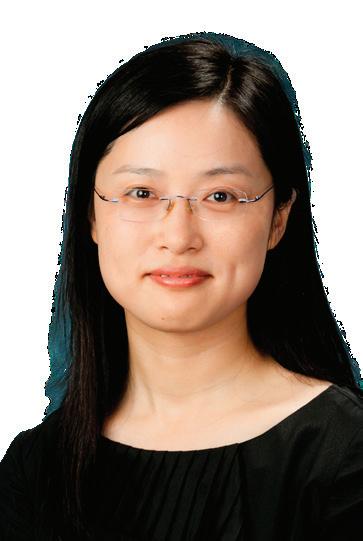
Professor (FIEEE, FIET)
�� yjzhang@ie.cuhk.edu.hk
�� https://www.ie.cuhk.edu.hk/yjzhang

Prof. Zhang received her PhD degree from Department of Electrical and Electronic Engineering, The Hong Kong University of Science and Technology. She was a visiting scholar at Laboratory for Information and Decision Systems (LIDS), Massachusetts Institute of Technology (MIT) from July to August, 2007 and July to August, 2009.
Her research interests focus on optimization in wireless systems design with application on optimal resource allocation, joint PHY-MAC layer design, cognitive radio networks, randomaccess networks, broadband OFDM and multicarrier techniques, MIMO signal processing.
Prof. Zhang is a co-recipient of 2011 IEEE Marconi Prize Paper Award on Wireless Communications (i.e., the annual best paper award of IEEE Transactions on Communications), As the only winner from Engineering Science, she has won the Hong Kong Young Scientist Award 2006, conferred by the Hong Kong Institution of Science.

�� chzhao@ie.cuhk.edu.hk
�� https://www.ie.cuhk.edu.hk/chzhao


Prof. Zhao joined the Department of Information Engineering at CUHK in August 2019. He received BEng degree in Automation from Tsinghua University in 2010, and MS and PhD degrees in Electrical Engineering from Caltech in 2012 and 2016, respectively. His PhD thesis won Wilts Prize from Caltech EE Department and Demetriades Prize from Caltech EAS Division. From 2016 to 2019, he worked as a researcher at National Renewable Energy Laboratory, Colorado, US, where he led and contributed to multiple projects on control and optimization of smart grid in collaboration with US Department of Energy and academic and industry partners.
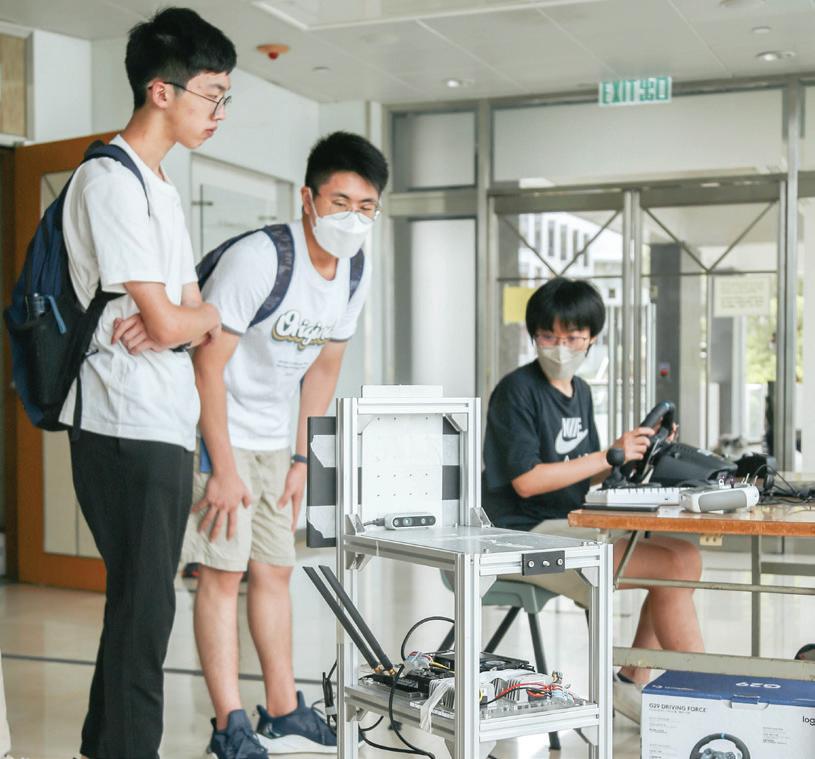

(SMIEEE)
�� pclee@cse.cuhk.edu.hk
�� https://www.cse.cuhk.edu.hk/~pclee/

Prof. Lee received the B.Eng. degree (first-class honors) in Information Engineering from the Chinese University of Hong Kong in 2001, the M.Phil. degree in Computer Science and Engineering from the Chinese University of Hong Kong in 2003, and the Ph.D. degree in Computer Science from Columbia University in 2008. He was a postdoctoral researcher at University of Massachusetts, Amherst in 2008-2009. He is now an Associate Professor of the Department of Computer Science and Engineering at the Chinese University of Hong Kong. He currently heads the Applied Distributed Systems Lab and is working very closely with a group of graduate students on different projects in large-scale software systems. He was a collaborator with Alcatel-Lucent in developing network management solutions for 3G wireless networks in 2007-2011. His research interests are in various applied/systems topics on improving the dependability of large-scale software systems, including storage systems, distributed systems and networks, and cloud computing.


Choh-Ming Li Chair Professor of Computer Science and Engineering (FIEEE, FACM, FHKAES)
�� cslui@cse.cuhk.edu.hk
�� https://www.cse.cuhk.edu.hk/~cslui/
Prof. Lui is currently the Choh-Ming Li Chair Professor in the Department of Computer Science & Engineering (CSE) at The Chinese University of Hong Kong (CUHK). He received his Ph.D. in Computer Science from UCLA. After his graduation, he joined the IBM Laboratory and participated in research and development projects on file systems and parallel I/O architectures. He later joined the CSE Department at CUHK. He has been a visiting professor in computer science departments at UCLA, Columbia University, University of Maryland at College Park, Purdue University, University of Massachusetts at Amherst and Universit degli Studi di Torino in Italy. Currently, he is leading a group of students and postdocs in the Advanced Networking and System Research Laboratory (ANSRLab). His current research interests are in online learning algorithms and applications (e.g., multi-armed bandits, reinforcement learning), machine learning on network sciences and networking systems, large scale data analytics, network/system security, network economics, large scale storage systems and performance evaluation theory.
Prof. Dah-ming CHIU
Emeritus Professor (FIEEE, MACM)
�� dmchiu@ie.cuhk.edu.hk
�� https://www.ie.cuhk.edu.hk/dahming
Prof. Tony T. LEE

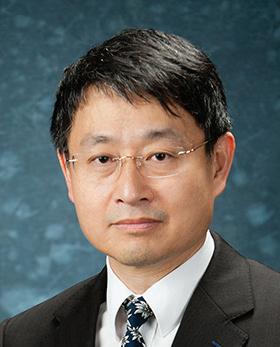
Emeritus Professor (FIEEE)
�� ttlee@ie.cuhk.edu.hk
�� https://www.ie.cuhk.edu.hk/ttlee
Prof. Robert S.Y. LI



Emeritus Professor (FIEEE)
�� bobli@ie.cuhk.edu.hk
�� https://www.ie.cuhk.edu.hk/syli

Prof. Wing-shing WONG
Emeritus Professor (FIEEE, FHKIE, FHKAES)
�� wswong@ie.cuhk.edu.hk
�� https://www.ie.cuhk.edu.hk/wing

Prof. Peter T.S. YUM
Emeritus Professor (FIEEE)
�� tsyum@ie.cuhk.edu.hk
�� https://www.ie.cuhk.edu.hk/yum
Professor Title Years served in IE
BAKSHI Mayank
BAO Paul Ge
CHAN Chun Fai, Aldar
CHANG Ming Yuen, Michael Associate Professor
CHEN Chung Shue
CHEN Minghua
CHEUNG Kwok Wai
CHEUNG Man Hon
CHIU Dah Ming, Winston Emeritus Professor
HUANG Jianwei Professor
JAGGI Sidharth
KIM Chang Su
LEE Tong, Tony Emeritus Professor
LEUNG Kin Kwong Assistant Professor
LI Shuo Yen, Robert Emeritus Professor
LIN Chinlon Professor
LIU Jianzhuang Research Assistant Professor
LIU Kai Sui Assistant Professor
- 2006
- 2007
– 2006, 2018
– 2019

– 2015
– 2020
– 2017
– 2004
– 2014
– 2007
– 2003, 2005 –
2009 – 2010
– 2005
LOY Chen Change Research Assistant Professor 2013 - 2018
NG Wai Yin, Will Associate Professor 1989 – 2013
Professor Title Years served in IE
SIM Kwang Mong Associate Professor
WEI Keh Wei, Victor Professor
WING Omar Professor and Dean
WONG Shek Duncan Assistant Professor
WONG Tan Foon Associate Professor
WONG Wing Shing Emeritus Professor
WU Daoyuan Research Assistant Professor
YAN Jianxin Assistant Professor
YANG Yang Assistant Professor
YUM Tak Shing, Peter Emeritus Professor
ZHOU Bolei Assistant Professor
– 2004

– 2011
– 1998
– 2003
– 2007
– 2020
– 2022
– 2011
– 2003
– 2013
– 2022


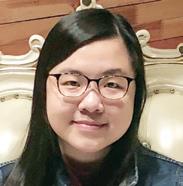
























IESoc 2022-23
President: Wai-yu CHEUNG
Vice-President (Internal): Ching-yee CHONG
Vice-President (External): Shing-him TSOI
Secretary: Ho-yin PANG
Treasurer: Chung-on CHAN
Academic Officer: Sum-yi LEUNG
General Affairs Officer: Tang YEUNG
Promotion Officer: Kei-man CHEUNG
Promotion Officer: Ka-kiu FONG

Recreation Officer: Wing-ho WONG
Sports Officer: Kwun-hei LO
Welfare Officer: Wing-sze CHAN
IESoc 2023-24


President: Wai LI
Vice-President (Internal): Sze-man LEE
Vice-President (External): Chi-cheung WONG
Secretary: Wing-chit TANG
Treasurer: Yin-fei LO
Academic Officer: Chi-lok CHAN
General Affairs Officer: Yi-cheung CHENG
Promotion Officer: Regin LO
Promotion Officer: Chin-hong LAI

Recreation Officer: Kin-hei PANG
Sports Officer: King-sum CHEUNG
Welfare Officer: Wing-sze CHAN
E https://www.facebook.com/IE.CUHK/ https://www.instagram.com/cuhk_iesoc/ Q





Chairman:
Anson CHUNG (MAIE 2015, MScIE 2017)
Vice-Chairman:
Andy WANG (MScIE 2015)
Secretary (Internal):




Albert AU YEUNG (IERG 2004)

Secretary (External):
Lixing LUO (IERG 2015, MScIE 2016)
Treasurer:
Leo YEUNG (IERG 2017)
http://www.ieaa.org/
Committee Members:
Maclean CHAN (MScIE 2017)
Tommy LEUNG (IERG 2016)
Iker SUEN (IERG 2017)
Darell TAM (IERG 2016)
Patric WU (MScIE 2017)
Arthur YUE (IERG 2017)
Winnie CHAN (IE Staff)
Candy WU (IE Staff)

2022 IERG graduate. Currently a Graduate Programmer at the Origo
As a student interested in cybersecurity, IERG courses offer me hands-on experience with concepts taught in lectures. The IERG program also allows flexibility in major electives. I took some related courses such as “Operating System” offered by the Computer Science program, and I got a better understanding of system security issues in relation to the various IERG cybersecurity courses. The final year project allowed me to explore cryptography and communication systems further. Unlike other courses, a research-based project requires students to figure out the problem and solution themselves. Through delivering presentations and writing reports, students are required to clearly explain their research topic to others within a certain amount of time, which is crucial for workplaces. Entering the IERG program provides me with many opportunities to explore different technologies and various full stack assessments, contributing to valuable and impressive experiences on my resume and greatly benefiting my career.
2022 IERG graduate. Currently an Assistant Solution Engineer at Huawei (Hong Kong)



During my four years at the IERG programme, I had the opportunity to expose myself to various topics in the engineering field, including communication, networking, software development, cybersecurity, etc. The IE curriculum equipped me with solid foundations in software and hardware development and soft skills such as collaboration and a problemsolving mindset, which I believe are indispensable in working as a leader. IE also offers many hands-on lab sessions that allow students to apply the theories and formulas they learned in lectures. Besides taking courses, I also had the opportunity to work as a student helper under the supervision of a professor in the department, and I participated in a research project that seemed formidable to me at first. It turned out to be a funny experience to realize that the knowledge I learned during regular lectures readily leads to something cutting-edge. If you are interested in technology and want to unleash your creativity, then IE is the best programme for you.


2022 MIEG graduate. Currently a PhD student in Data & Artificial Intelligence at Institut Polytechnique de Paris



MIE is among the most thorough and flexible programs offered at CUHK. Traditionally, it has been a small selective stream with around 15 students per year, thus, facilitating students’ interactions with professors. MIE also differs from other engineering programs by having many math courses not taught in the Engineering Faculty but instead in the Mathematics Department, where rigorous and abstract thinking is emphasized. I benefited a lot from this structure as it improved my mathematical ability, prepared me for advanced subjects, and motivated my participation in multiple research projects. This paved my way to pursue a PhD at Institut Polytechnique de Paris in machine learning after graduation.
Aside from strongly preparing students for further studies, MIE also develops a wide skillset, allowing broad cross-industry employment opportunities such as software engineering, machine learning, and financial quantitative research positions. I would highly recommend MIE for mathematically inclined students who are also interested in computer science or information engineering and who are looking to have a strong and broad foundation across these fields.
2022 MIEG graduate. Currently a PhD student in Computer Science and Engineering at the University of Michigan
I have had a fruitful university life at CUHK Engineering. My major programme, Mathematics and Information Engineering, is a good fit for my interests. The programme comprises both theory and applications. Not only did I acquire a solid knowledge in areas such as communication systems and signal processing from the programme, but I also developed problem-solving skills and abilities to generate innovative solutions. Moreover, the learning environment was positive and supportive. Teachers always welcomed students to ask questions, while students liked to exchange ideas and learn from each other.
Besides, the Faculty of Engineering provided plenty of opportunities for students to engage in research under the supervision of professors at CUHK and other top universities. These opportunities helped me to build a solid foundation for research.
My journey at CUHK Engineering is fascinating. I am super grateful to the programme and the faculty for their support and education.

Prof. LI Cheuk Ting
Won the IEEE Information Theory Society Paper Award 2023
Prof. YEUNG Wai Ho, Raymond Elected NAI Fellow 2022
Prof. XING Guoliang, Mr. ZHAO Zhihe (PhD) and Miss LING Neiwen (PhD)
Won the Best Poster Award at the 20th ACM Conference on Embedded Networked Sensor Systems (SenSys) 2022
Prof. YAN Zhenyu, Prof. XING Guoliang, Mr. SHI Shuyao (PhD)
Won the Best Paper Award Runner-Up at the 28th Annual International Conference On Mobile Computing And Networking (ACM MobiCom 2022)
202122

Prof. YEUNG Wai-ho Raymond
Awarded RGC Senior Research Fellow 2022/23 (Research and Development of Network Coding Technologies)
Prof. CHAN Yuen-yan Rosanna
Awarded the IEEE William E. Sayle II Award for Achievement in Education in 2021
Prof. YAN Zhenyu
Awarded “Rising Star Award” from ACM SIGBED China Chapter
Prof. YEUNG Wai-ho Raymond
Named the recipient of 2022 Claude E. Shannon Award of IEEE Information Theory Society
Prof. ZHAO Changhong
The paper “Optimizing DER participation in inertial and primary-frequency response” awarded the 2021 IEEE Power and Energy Society (PES) Prize Paper Award and one of the seven Best Papers of IEEE Transactions on Power Systems (TPWRS) selected in 2021.

Dr. HO Marco
Awarded the University Education Award (Early Career Faculty Members) for 2020-21
Prof. LIEW Soung Chang
Elected as HKAES Fellow of 2020
Prof. VONTOBEL Pascal O.
Elevated to IEEE Fellow for his contributions to graphical models for channel coding
Prof. ZHAO Changhong
Received the RGC Early Career Award 2020/21
Prof. LIEW Soung Chang
Prof. YEUNG Wai Ho Raymond
Mr. Aldous Ng (1993 IERG Alumnus) (Founders of CU Coding Limited)
Won the Golden Award in The 1st Greater Bay Area 5G Application and Innovation Challenge
Prof. YEUNG Wai Ho Raymond
Awarded the 2021 IEEE Richard W. Hamming Medal
Prof. CHAN Chun Kit Calvin
Elected to be a Fellow of The Optical Society (OSA) in the 2021 class
Prof. TANG Xiaoou
Recognised by Inclusion in AI 2000 Most Influential Scholar Annual List in the fields Computer Vision and Multimedia.
Prof. ZHOU Bolei and Prof. LUO Ping (2014 PhD Alumnus)
Listed on the 20 Innovators Under 35 Asia Pacific by MIT Technology Review 2020.

Prof. ZHANG Yingjun Angela
Elevated to IEEE Fellow for contributions to resource allocation and optimization in wireless communications.
Prof. XING Guoliang
Elevated to IEEE Fellow for contributions to sensor networks and lowpower wireless networks.

Miss Ziyi XU (PhD) and Mr. Chang CAI (PhD)
Their research project got into the Top 15 in the 1st IEEE ComSoc Three Minute Thesis (3MT) Competition. Miss Ziyi XU Won the 2nd prize in the competition
Mr. WU Ka-Lok (MPhil), Mr. HUE Man-Hong (Undergraduate, IE),
Miss TANG Ka-Fun (Undergraduate, IE), Prof. CHAU Sze-Yiu
Won the Best Paper Award at the 16th ACM Conference on Security and Privacy in Wireless and Mobile Networks (ACM WiSec 2023)
Miss HO Ka-Man Mandy (2015 IE Alumnus)
Received the IET Young Woman Engineer of the Year Award 2022
Mr. ZHANG Haoyu (MSc, IE), Mr. CHU Chun-to (Undergraduate, CS) and
Mr. ZHANG Wenyu (PhD Statistics)
Won the First Prize Award in Huawei ICT Competition 2022-23
Mr. WONG Pak-Hung (IE Undergraduate)
Mr. FU Tianwen (MIE Undergraduate)

Won the Charles Kao Top Performance Award 2021-22
Mr. CHEN Daoyuan (MIE Undergraduate)
Miss CHENG Sum-Yee and Miss MAK Ka-Ling (IE Undergraduate)
Mr. POON Ngai-Man (IE Undergraduate)
Won the Final Year Project Awards 2021-22
Miss CHENG Sum Yee (IE Undergraduate)
Miss MAK Ka Ling (IE Undergraduate)
Won the 2nd runner-up award in the Barrier-free Campus Design Competition for their Final Year project “IE for Better Living”
Wong Tsz Hin (CS Undergraduate), Chan King Kai (CS Undergraduate)
Tsang Ho San (IE Undergraduate), Chan Chun Wai (IE Undergraduate)
Won the PwC HackaDay 2021
Mr. ZHANG Lihao (PhD)
Prof. WANG Taotao (2015 PhD Alumnus), Prof. LIEW Soung Chang
Won the Best Student Paper Award in IEEE CPSCOM 2021
Mr. LIN Xingqin (2011 MPhil Alumnus)
Received the 2021 IEEE Vehicular Technology Society Early Career Award
Mr. HU Zihao (IE Undergraduate), Mr. ZHOU Mingjun (MIE Undergraduate)
Won the Charles Kao Top Performance Award 2020-21
Miss TSE Man-yan, Miss NG Tim-ying (IE Undergraduates)
The Final Year Project “Face Untouchable” won the Third Prize (Information Technology Stream) in the 7th Hong Kong University Student Innovation and Entrepreneurship Competition (Challenge Cup)
Mr. SHUAI Xian (PhD), Mr. SHEN Yulin, Mr. TANG Yi (PhD), Mr. SHI Shuyao (PhD), Mr. Luping Ji, Prof. XING Guoliang
The paper “milliEye: a Lightweight mmWave Radar and Camera Fusion System for Robust Object Detection” Won the Best Student Paper Award at IoTDI 2021

Mr. LIN Xingqin (2011 MPhil Alumnus)
Received the 2021 IEEE Communications Society Fred W. Ellersick Prize
Mr. LIN Xingqin (2011 MPhil Alumnus)
Won the IEEE COMSOC Best YP Award 2020
Mr. ZHANG Guanghui (PhD)
Awarded Postgraduate Research Output Award 2019 by CUHK
Mr. HO Tung-lam (IE Undergraduate)
Mr. LAU Chin-wa (MIE Undergraduate)
Won the Charles Kao Top Performance Award 2020-21
Mr. CHOW Chun-fung (IE Undergraduate), Mr. LAU Chin-wa (MIE Undergraduate), Mr. YIP Tsz-wing (IE Undergraduate) & Mr. YIU Cheuklok (MIE Undergraduate); Mr. HO Tung-lam (IE Undergraduate) & Mr. LAM Kai-chun (IE Undergraduates)
Won the Final Year Project Awards 2020-21
Dr. HE Kaiming (2011 PhD Alumnus)
Recognised by Inclusion in AI 2000 Most Influential Scholar Annual List in the fields Computer Vision and Machine Learning
Mr. KUO Wai Keung (2015 IE Alumnus)
Listed as one of the “30 Under 30” in 2019 by Forbes China

Mr. KWAN Tsz Kit, Mr. YUEN Lok Pang, Mr. TAM Kin Pak (All IE Undergraduates)
Won the Champion in Bizkathon@HKUST
Mr. LEI Haoyu (IE Undergraduate)
Won the Silver Award (Year-2 Group) in 「文學中大」 Competition
Mr. CHOW Tsz Hei & Mr. WONG Pak Hei, Miss QIN Sinchun, Miss YANG Zheyuan (IE Undergraduates)
Won the Final Year Project Awards 2018-19
Miss YANG Zheyuan (IE Undergraduate)
Mr. CAO Jiaming (MIE Undergraduate)
Won the Charles Kao Top Performance Award 2018-19
(Arranged in alphabetical order)














The research activities in the Department of Information Engineering concentrate mainly in SIX major areas: (1) AI, Big Data and Multimedia Processing; (2) Cyber-security and Applied Cryptography; (3) Information and Coding Theory; (4) Internet Engineering and Networked Applications; (5) Optical Communications and Networking; and (6) Wireless Communications and Networking. Research laboratories have been established by our professors to further the development of various research specializations and foster new blood of research expertise.
























RTTS-SDR is a system that we implemented on PC-USRP using GNURadio. It can achieve synchronization among nodes and aligned their time slots to within 100ns, and the end-to-end latency can be down to 3.75ms.

Network protocol and network architecture designs for blockchain, with the aim to boost transaction throughput.

Representative Papers
Y. Shao, S. C. Liew, T. Wang, “AlphaSeq: Sequence Discovery with Deep Reinforcement Learning”, IEEE Trans. Neural Networks and Learning Systems, early access, DOI: 10.1109/TNNLS.2019.2942951, Oct. 2019.
Y. Yu, T. Wang, S. C. Liew, “Deep-Reinforcement Learning Multiple Access for Heterogeneous Wireless Networks”, IEEE J. on Selected Areas in Commun., vol. 37, no. 6, pp. 1277-1290, DOI: 10.1109/ JSAC.2019.2904329, Jun. 2019.
L. Lu, L. You, S. C. Liew, “Network-Coded Multiple Access”, IEEE Trans. on Mobile Computing, vol. 13, no. 12, pp. 2853-2869, Dec. 2014.

L. Lu, T. Wang, S. C. Liew, S. Zhang, “Implementation of Physical-layer Network Coding”, Elsevier Phycom, Special Issue of Physical Communication on “Network Coding and Its Applications to Wireless Communications”, vol. 6, pp. 74-87, Mar. 2013.












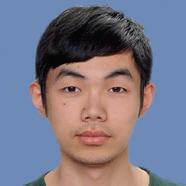


Bluetooth is a widely used communication technology, especially under the scenarios of mobile computing. However, according to our recent studies on the Bluetooth protocol as well as its implementation on Android systems, there are still some design weaknesses that could lead to severe security consequences. For example, through exploiting the Bluetooth authentication flaw, attackers could abuse Bluetooth capabilities to bypass existing security measures of the Android system. As a result, attackers are able to steal user privacy, manipulate critical settings, install malicious apps without user consent. To help mitigate such threats, we have proposed a defense solution and proved its effectiveness on a real phone.
Our work demonstrated that backdoors created by conventional data poisoning attacks are sourceagnostic and characterized by unique representations generated for attack images, which are clearly distinguishable from those for normal images. Existing detection techniques rely on these properties and may fail with source-specific backdoors like TaCT. By leveraging the distribution of the sample representations through a two-component model, we designed a statistical method SCAn to untangle representations of each class into a mixture model, and utilized a likelihood ratio test to detect an infected class. Our study takes a step forward to understand the mechanism of implanting a backdoor within a DNN model and how a backdoor looks like from the perspective of model’s representations.

Representative Papers
Fenghao Xu, Wenrui Diao, Zhou Li, Jiongyi Chen, Kehuan Zhang. “BadBluetooth: Breaking Android Security Mechanisms via Malicious Bluetooth Peripherals”, Proceedings of Network and Distributed System Security Symposium 2019 (NDSS’19). San Diego, CA, USA. Feb 2019.
Daoyuan Wu, Debin Gao, Rocky K. C. Chang, En He, Eric K. T. Cheng, and Robert H. Deng. “Understanding Open Ports in Android Applications: Discovery, Diagnosis, and Security Assessment”, In Proc. ISOC Network and Distributed System Security Symposium (NDSS), 2019.



Ronghai Yang, Wing Cheong Lau, Jiongyi Chen, Kehuan Zhang. “Vetting Single-Sign-On SDK Implementations via Symbolic Reasoning”, The 27th USENIX Security Symposium (Security’18). Baltimore, MD, USA. Aug 2018.
Jiongyi Chen, Wenrui Diao, Qingchuan Zhao, Chaoshun Zuo, Zhiqiang Lin, XiaoFeng Wang, Wing Cheong Lau, Menghan Sun, Ronghai Yang, Kehuan Zhang. “IoTFuzzer: Discovering Memory Corruptions in IoT Through App-based Fuzzing”, Proceedings of Network and Distributed System Security Symposium 2018 (NDSS’18). San Diego, CA, USA. Feb 2018.
Our lab devises cryptosystems which satisfy the often seeminglyconflicting security /privacy / functionality requirements in complex scenarios.



Supervisors
Students
https://crypto.ie.cuhk.edu.hk

















Security incidents compromising millions of records are not uncommon. Our group has been working on securing sensitive data without sacrificing its utility: i) Searchable encryption allows a server to search over encrypted data without knowing what is being searched; ii) Privacy-preserving machine-learning trains a model (e.g., neural networks) without knowing the training data. Furthermore, one can learn the prediction result without leaking the query (e.g., health records, financial history). Solving these seemingly impossible tasks requires advanced cryptographic techniques. This project got more than HK$2,000,000 funding through three RGCGRF grants, which supported the MPhil study of three MIEG graduates (Russell Lai, Raymond Tai, and Lucien Ng).

Privacy is fundamental human rights. Yet, keeping everything private hinders many applications. Our group works on various kinds of privacy-enhancing technology: i) Threshold private-set intersection only reveals two private sets’ intersection when their overlapping is large enough, which found applications in contact discovery (in instant-messaging or matchmaking) and contact tracing during pandemic;
ii) Decentralized anonymous credentials associate users with attributes (e.g., reputation scores) asserted by others, any credential usages are unlinkable otherwise, which also found applications in privacypreserving cryptocurrency. This project received RGC Early Career Award with nearly HK$1,000,000 funding, which supported the PhD study of two IERG graduates (Tao Zhang and Yongjun Zhao).
Harry W. H. Wong, Jack P. K. Ma, Hoover H. F. Yin, and Sherman S. M. Chow. “Real Threshold ECDSA”, Network and Distributed System Security (NDSS) Symposium 2023.
K. L. Wu, M. H. Hue, N. M. Poon, K. M. Leung, W. Y. Po, K. T. Wong, S. H. Hui, and S. Y. Chau. “Back to School: On the (In)Security of Academic VPNs”, USENIX Security Symposium 2023.
M. Yahyazadeh, S. Y. Chau, L. Li, M. H. Hue, J. Debnath, S. C. Ip, C. N. Li, E. Hoque, and O. Chowdhury. “Morpheus: Bringing The (PKCS) One To Meet the Oracle”, ACM Conference on Computer and Communications Security (CCS) 2021.

Xiuhua Wang and Sherman S. M. Chow. “Cross-Domain Access Control Encryption: Arbitrary-Policy, Constant-Size, Efficient”, IEEE Symposium on Security and Privacy (S&P) 2021.

The lab dedicated in building embedded AI systems with applications in smart city, smart grid, smart health, and environments.
















Students







We are developing a large-scale real-time Edge AI computing system that can enable smart lampposts to improve the performance of autonomous vehicles significantly. Equipped with networking interfaces and privacy-preserving sensors such as LiDAR, smart roadside infrastructure can enable a range of smart city innovations, including intelligent transportation, autonomous driving, and adaptive control of traffic lights on a city scale. Currently, we have installed 25 smart lampposts on the CUHK campus, which is the world’s largest testbed of its kind, allowing us to evaluate and refine our research in edge AI and autonomous driving.

Alzheimer’s Disease (AD) has been a global public health challenge due to population aging. Early diagnosis and intervention can significantly improve elderly individuals, but traditional diagnostics, such as MRI, are costly and do not allow continuous monitoring of the disease progression. To address this problem, we have developed a cutting-edge smart sensing system for early AD diagnosis and intervention. We have developed a sensor box containing multiple non-invasive sensors placed in living/bedroom rooms to capture various behavioral data like basic motion/social activities. The collected data is then analyzed using state-of-the-art AI algorithms to identify potential signs and stages of AD. Our smart sensing system has already been deployed in the homes of more than 60 normal elderly individuals and those with AD.
Shuyao Shi, Jiahe Cui, Zhehao Jiang, Zhenyu Yan, Guoliang Xing, Jianwei Niu, Zhenchao Ouyang, “VIPS: RealTime Perception Fusion for Infrastructure-Assisted Autonomous Driving”, The 28th Annual International Conference on Mobile Computing and Networking (MobiCom), 2022, Best Paper Award Runner-Up.
Neiwen Ling, Xuan Huang, Zhihe Zhao, Nan Guan, Zhenyu Yan, Guoliang Xing, “BlastNet: Exploiting Duo-Blocks for Cross-Processor Real-Time DNN Inference”, The 20th ACM Conference on Embedded Networked Sensor Systems (SenSys), 2022, Best Paper Finalist.

Yuze He, Li Ma, Yi Tang, Zhehao Jiang, Guoliang Xing, “VI-Eye: Semantic-based 3D Point Cloud Registration for Infrastructure-assisted Autonomous Driving”, The 27th Annual International Conference on Mobile Computing and Networking (MobiCom), 2021.

Xiaomin Ouyang, Xian Shuai, Jiayu Zhou, Ivy Wang Shi, Zhiyuan Xie, Guoliang Xing, Jianwei Huang, “Cosmo: Contrastive Fusion Learning with Small Data for Multimodal Human Activity Recognition”, The 28th Annual International Conference on Mobile Computing and Networking (MobiCom), 2022.
Xian Shuai, Yulin Shen, Siyang Jiang, Zhihe Zhao, Zhenyu Yan, Guoliang Xing, “BalanceFL: Addressing Class Imbalance in Long-Tail Federated Learning”, The 21st ACM/IEEE International Conference on Information Processing in Sensor Networks (IPSN), 2022.








People with complex communication needs are not able to conduct daily conversations easily. They often rely on Augmentative and Alternative Communication (AAC) methods to substitute or complement verbal communication. Our lab members collaborate with speech therapists from SAHK – a non-governmental organization in Hong Kong providing rehabilitation services to 15,000+ families annually. We have designed, implemented, and productized a cloud AAC solution into EasyDial – an intelligent mobile application that provides novel telephone-like experience to end users with severe communication disabilities.

Students with special education needs (SEN) can be sensitive to sensory stimulations, e.g., the background noise and lighting levels from the physical classroom. Furthermore, they lack the ability to express their feelings and learningrelated needs. The Lab collaborates with several special education schools in Hong Kong to apply Internet of Things (IoT) technologies to develop smart classrooms for these students.
R.Y.-Y. Chan and E. Sato-Shimokawara et al., “A context-aware augmentative and alternative communication system for school children with intellectual disabilities”, IEEE Systems Journal, vol. 14, no. 1, March 2020, pp. 208-219.


S. Muramatsum, E. Kasano, Y. Motohashi, E. Sato-Shimokawara, R.Y.-Y. Chan, and T. Yamaguchi, “Estimating indoor behavior using sensor fusion with BLE beacons and wearable devices for information presentation”, in Proceedings of the 16th International Conference on Ubiquitous Robots (UR 2019), Jeju, South Korea, 2019, pp. 236-239.
R. Y.-Y. Chan,J. Ding, W. K. Lam et al., “Making telecommunications services accessible to people with severe communication disabilities”, in Proceedings of 2016 IEEE Global Humanitarian Technology Conference (GHTC), Seattle,WA, 2016, pp.105-112.
R. Y.-Y. Chan, X. Bai, X. Chen et al. “iBeacon and HCI in special education: Micro-location based augmentative andalternative communication for children with intellectual disabilities”, in Extended Abstract of the 2016 ACMSIGCHI Conference Extended Abstracts on Human Factors in Computing Systems (ACM CHI), San Jose, CA,2016, pp.1533-1539.








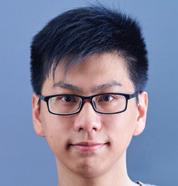






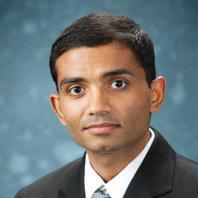




We are interested in various aspects in quantum information processing, an area that has received a lot of attention recently in academia and industry. In particular, our research aims at an information-theoretic characterization of channels with a quantum memory, the construction and efficient decoding of codes stabilizing quantum systems, and a fundamental understanding of graphical models used for representing quantum information processing systems.

The set of rate tuples that can be reliably transmitted over a communication scenario is called the capacity region for the setting. The research conducted in this laboratory focusses on establishing capacity regions and/or improving the best known inner and outer bounds to the capacity region for some fundamental communication settings. Towards this end, the research mainly focusses on developing new mathematical ideas and techniques, and oftentimes involves determining optimizers or properties of optimizers of families of non-convex optimization problems that arise naturally in these scenarios. The contributions made by the laboratory have been very well recognized by the information theory community.
Representative Papers
M.X. Cao and P.O. Vontobel, “Bounding and estimating the classical information rate of quantum channels with memory“, IEEE Transactions on Information Theory, Sep. 2020.
C.T. Li, A. El Gamal, “Distributed simulation of continuous random variables“, IEEE Transactions on Information Theory, Oct. 2017. (The short version of this paper received the Jack Keil Wolf Student Paper Award at the 2016 IEEE International Symposium on Information Theory.)
Y. Geng, C.Nair, ”The capacity region of the two-receiver vector Gaussian broadcast channel with private and common messages”, IEEE Transactions on Information Theory, April 2014. (This paper received the 2016 IEEE Information Theory Society paper award.)

R. W. Yeung, Information Theory and Network Coding, Springer, 2008.
Outer Bounds for Multiuser Settings: The Auxiliary Receiver Approach


A. Gohari and C. Nair
IEEE Transactions on Information Theory, vol. IT-68, pp. 701-736, Feb, 2022.






The lab is a major long-term contributor to the field of Network Coding. We train PhDs and postdoctoral researchers and collaborate with industry to develop network coding related technologies and discover new directions in mathematics with important long-term impacts.



In contrast to traditional store-and-forward, BATS code allows intermediate network nodes apply simple network coding so that new packets can be generated along the way, which not only help to compensate the network loss, but also improve the throughput for multicast. BATS code outperforms traditional techniques use retransmission or fountain codes, and can asymptotical achieve the theoretical limit.

A wireless multi-hop network transmission protocol has been built using BATS code. It enables efficient communications through tens of wireless hops with dynamic link loss patterns. A video streaming demonstration using BATS code has been carried out successfully.
Wireless communication is broadcast by nature. This attribute was considered an interference-inducing nuisance in most wireless networks because simultaneous transmissions by different parties might interfere with one another. PNC turns the whole situation around by exploiting the physical network coding operation that occurs naturally when multiple nodes transmit electromagnetic (EM) Waves simultaneously. In a two-way relay channel in which two end nodes communicate via a relay node (e.g., two ground stations communicating via a satellite), allowing the two end nodes to transmit simultaneously and applying PNC at the relay can boost data throughput by 100%.

Representative Papers
L. Lu, L. You, S. C. Liew, “Network-Coded Multiple Access”, IEEE Trans. on Mobile Computing, vol. 13, no. 12, pp. 2853-2869, Dec. 2014.

S. Zhang, S. C. Liew, P. P. Lam, “Physical-Layer Network Coding”, ACM Mobicom 2006, Sept 2006.
S.-Y. R. Li, R. W. Yeung and N. Cai, “Linear Network Coding”, IEEE Trans. Info. Theory, IT-49: 371–381, 2003.

R. Ahlswede, N. Cai, S.-Y. R. Li, and R. W. Yeung, “Network Information Flow”, IEEE Trans. Info. Theory, IT-46: 1204–1216, 2000.
The aim of the lab is to investigate the architecture and the enabling technologies to achieve highly efficient and flexible optical systems or networks.















• Design of optical metro / access network infrastructure for telecommunications, including passive optical networks (PON) for fiber-to-the-home (FTTH), radio-over-fiber (RoF) systems for fiberwireless systems and mobile backhaul/fronthaul.
• Visible light communications (VLC) and optical-wireless systems for stationary and mobile links, for indoors, underwater, and vehicleinfrastructure communications.
• Design of optical and electronic techniques for high-speed and robust optical communication systems, including direct- and coherentdetection systems, advanced spectral efficient modulations, digital signal processing techniques, and optical performance monitoring.


• Network planning and resource optimization of elastic optical networks, including wavelength assignment and routing, protection and restoration, traffic grooming, and optical multicast.

Representative Papers
Z. Y. Hu, C. K. Chan, “A novel baseband faster-than-Nyquist non-orthogonal FDM IM/DD system with block segmented soft-decision decoder”, To appear in IEEE/OSA Journal of Lightwave Technology, vol. 38, 2020.
Y. Hong, L. K. Chen, J. Zhao, “Performance-enhanced gigabit/s MIMO-OFDM visible light communications using CSI-free/dependent precoding techniques”, OSA Optics Express, vol. 27, no. 9, pp. 12806-12816 , Apr. 2019.
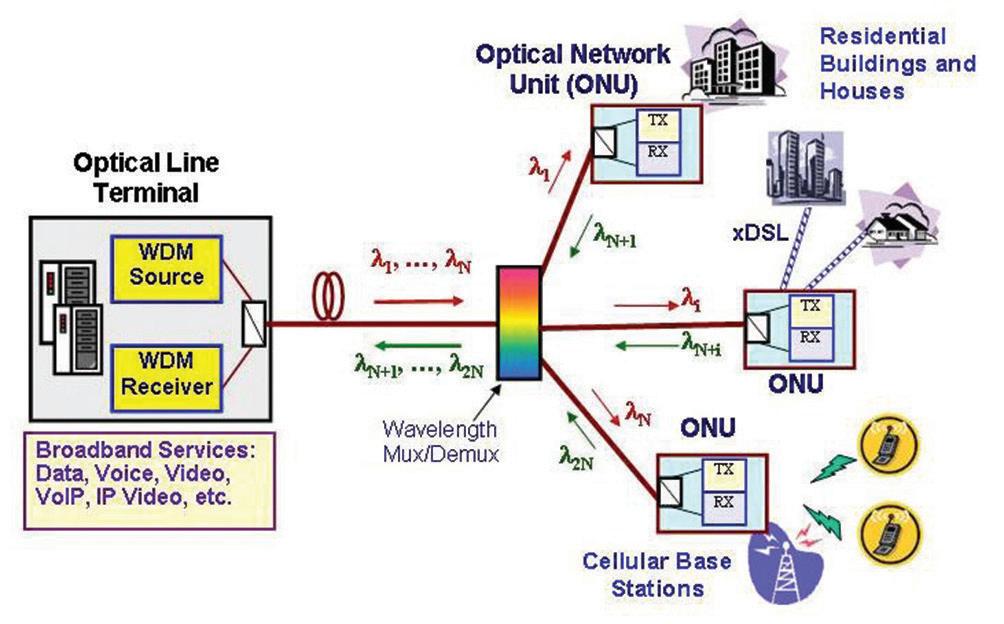

Z. Y. Hu, C. K. Chan, “A 7-D hyperchaotic system based encryption scheme for secure fast-OFDMPON”, IEEE/OSA Journal of Lightwave Technology, vol. 36, no. 16, pp. 3373-3381, Aug. 2018.
Y. Hong, T. Wu, L. K. Chen, “On the performance of adaptive MIMO-OFDM Indoor visible light communications”, IEEE Photonics Technology Letters, vol. 28, no. 8, pp. 907-910, Apr. 2016.















Edge intelligence is emerging as a new concept that harvests the massive amount of data and computing capability at mobile edge devices to provide artificial intelligence (AI) services at the edge of the Beyond 5G wireless systems. In our group, we comprehensively study the performance analysis and system optimization of mobile edge computing, mobile federated learning, and mobile edge inference.
Optimization techniques have been widely used in the design of ICSs to achieve the utmost performance with limited resources. Likewise, machine-learning based approaches are driven by real-world data and are promising alternatives to optimization when mathematically convenient system models are not available. Noticeably, the fields of machine learning and mathematical optimization have become increasingly intertwined. A focus of our group’s research is to design machineries that efficiently integrate model-based optimization and model-free learning.
Representative Papers
H. Liu, X. Yuan, and Ying Jun Zhang, “Super-Resolution Blind Channel-and-Signal Estimation for Massive MIMO with One-Dimensional Antenna Array”, IEEE Transactions on Signal Processing, vol. 67, no. 17, pp. 4433-4448, Sept. 2019.
C. Fan, X. Yuan, and Ying Jun Zhang, “CNN Based Signal Detection for Banded Linear Systems”, IEEE Transactions on Wireless Communications, vol. 18, no. 9, pp. 4397-4407, Sept. 2019.
L. Huang, S. Bi, and Ying Jun Zhang, “Deep reinforcement learning for online computing offloading in Wireless Powered Mobile-Edge Computing Networks”, early access, IEEE Transactions on Mobile Computing

S. Bi and Ying Jun Zhang, “Computation Rate Maximization for Wireless Powered Mobile Edge Computing with Binary Computation Offloading”, IEEE Transactions on Wireless Communications, vol. 17, no. 6, pp. 4177-4190, June 2018.













Using extensive trace-driven simulations and empirical measurements of our Kubernetesbased implementation, we demonstrate that Accordia can dynamically learn a near-optimal cloud configuration (i.e. within 10% of the optimal cost) after fewer than 20 runs from over 7000 candidate choices within a 5-dimension search space, which translates to a 2X-speedup and a 20.9% cost-savings, when comparing to CherryPick.

MoSSOT (Mobile SSO Tester), an automated blackbox security testing tool for Android applications utilizing the SSO services from three mainstream service providers. The tool detects the vulnerabilities within the practical SSO implementations by fuzzing related network messages. According to the test result, around 72% of the tested applications incorrectly implement SSO and are thus vulnerable. Our test also identifies an unknown vulnerability as well as a new variant, in addition to four known ones.
Huanle Xu, Yang Liu, Wing Cheong Lau, Rui Li, “Combinatorial Multi-Armed Bandits with Concave Rewards and Fairness Constraints”, International Joint Conference on Artificial Intelligence (IJCAI) 2020

Zhibo Yang, Huanle Xu, Jianyuan Deng, Chen Change Loy, Wing Cheong Lau, “Robust and Fast Decoding of High-Capacity Color QR Codes for Mobile Applications”, IEEE Transactions on Image Processing, Dec 2018.
Ronghai Yang, Wing Cheong Lau, Jiongyi Chen, Kehuan Zhang, “Vetting Single-Sign-On SDK Implementations via Symbolic Reasoning”, in the 27th USENIX Security Symposium, Aug 2018. This work received the 2018 Internet Defense Prize (2nd Runner-up) from USENIX and Facebook.
Huanle Xu, Wing Cheong Lau, “Optimization for Speculative Execution in Big Data Processing Clusters”, IEEE Transactions on Parallel and Distributed Systems, Feb 2017.









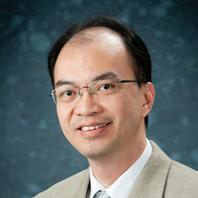
With the pandemic, everyone is now working or studying from home. This creates a tremendous demand for real-time video communication tools such as Zoom. In this research project, we investigate the engine of these real-time video applications – the realtime communications protocol. Surprisingly, current leading industry implementations such as Google’s WebRTC, while working well in lightly-loaded networks, could degrade significantly when there are other applications sharing the network. To tackle this challenge, we develop a new real-time video communications protocol called PIBES which can sense the presence of other competing traffics to maintain good performance for the critical video stream.

Video streaming is one of the killer applications in the Internet. The challenge is to achieve good video picture and playback quality despite the unavoidable bandwidth variations in the Internet. This is especially critical for mobile video applications, as bandwidth availability can and does vary significantly in real networks. This research develops a new approach to the problem by automatically (using genetic programming) designing not one, but multiple algorithms for adaptive streaming video so that the most effective algorithm can be selected at runtime to cater to the latest network conditions for best video streaming performance.
Representative Papers
Lioba Heimbach, Lingfeng Guo, Rudolf K. H. Ngan, and Jack Y. B. Lee, “PIBES - A Competing-FlowAware Protocol for Real-Time Video Applications”, IEEE Open Journal of the Communications Society, vol.1, 14 Aug 2020, pp.1267-1277.

Guanghui Zhang and Jack Y. B. Lee, “Ensemble Adaptive Streaming – A New Paradigm to Generate Streaming Algorithms via Specializations”, IEEE Transactions on Mobile Computing, vol.19(6), June 2020, pp.1346-1358.


Guanghui Zhang, Rudolf K. H. Ngan, and Jack Y. B. Lee, “EmuStream - An End-to-End Platform for Streaming Video Performance Measurement”, IEEE Access, vol.8, 23 Dec 2019.
Yan Liu and Jack Y. B. Lee, “Post-Streaming Rate Analysis - A New Approach to Mobile Video Streaming with Predictable Performance”, IEEE Transactions on Mobile Computing, vol.16(12), Dec 2017, pp.3488-3501.















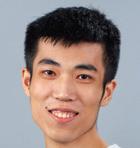
















Generative modeling brings a new paradigm shift in AI from content classification to content creation. Our research aims at studying why and how the deep generative models are able to synthesize realistic images and videos, as well as developing novel interfaces for human and AI collaboration on content creation. Our work facilitates a wide range of computer graphics and interactive image editing applications.

The rise of deep learning has led to a wave of breakthroughs in computer vision. From face recognition to object detection, there have been a number of successful stories on how AI can help understand images. Over the past several years, the CUHK Multimedia Lab has been working on extending the success of AI in the image domain to videos. The techniques developed by our lab has substantially pushed forward the state of the art in video understanding.
Representative Papers
Yujun Shen, Jinjin Gu, Xiaoou Tang, Bolei Zhou, “Interpreting Latent Space of GANs for Semantic Face Editing”, CVPR 2020.
Jinjin Gu, Yujun Shen, Bolei Zhou, “Image Processing Using Multi-Code GAN Prior”, CVPR 2020

Yu Xiong, Qingqiu Huang, Lingfeng Guo, Hang Zhou, Bolei Zhou, Dahua Lin, “A Graph-based Framework to Bridge Movies and Synopses”, International Conference on Computer Vision (ICCV), 2019

Yue Zhao, Yuanjun Xiong, Limin Wang, Zhirong Wu, Xiaoou Tang, Dahua Lin, “Temporal Action Detection with Structured Segment Networks”, International Journal of Computer Vision (IJCV), 2019.

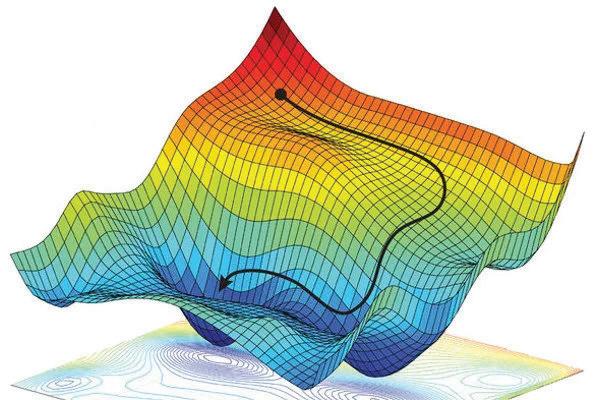















Through rigorous mathematical analysis and accurate software simulation, we aim to develop a systematic framework for distributed energy resources, e.g., smart appliances, batteries, solar photovoltaics, to provide fast frequency response to power networks. Key dynamic performance indices, such as the rate of change of frequency, overshoot, settling time, and steady-state error, are optimized considering their trade-offs, subject to circuit laws and safety limits.

We aim to develop computationally scalable and efficient algorithms to solve the difficult nonlinear, nonconvex optimal power flow problem in power networks with increasing shares of variable renewable generation. The project will jointly utilize convex relaxation methods for nonconvex optimization, distributed feedback control theory, and software simulation in realistic power network models.

W. Lin, Y. Chen, Q. Li, and C. Zhao, “An AC-feasible linear model in distribution networks with energy storage,” IEEE Transactions on Power Systems, early access, DOI: 10.1109/TPWRS.2023.3244959.


Y. Chen and C. Zhao, “Improved approximation of dispatchable region in radial distribution networks via dual SOCP,” IEEE Transactions on Power Systems, early access, DOI: 10.1109/TPWRS.2022.3226894.
H. Liang, X. Zhou, and C. Zhao, “Hierarchical optimal power flow with improved gradient evaluation,” American Control Conference, Atlanta, GA, USA, 2022, pp. 4547–4552.
T. Wu, C. Zhao, and Y.-J. A. Zhang, “Privacy-preserving distributed optimal power flow with partially homomorphic encryption,” IEEE Transactions on Smart Grid, 12(5):4506– 4521, 2021.









We introduce the SNC scheme in both uplink and downlink multi-user multipleinput multiple-output (MU-MIMO) cloud radio access networks (C-RANs). The base stations (BSs) are connected to a central processor (CP) via digital links with individual limited capacities. The user equipments (UEs) communicate with the CP through BSs serving as relay nodes. We focus on the situation that the digital links have moderate rate constraint. The SNC scheme strategically aligns the signals and then decodes the aligned signals by physical-layer network coding. With the proper design, the SNC scheme significantly mitigates the interference.
Mobile edge computing (MEC) is an emerging technology for enhancing the computational capabilities of the mobile devices and reducing their energy consumption via offloading complex computation tasks to the nearby servers. Multiuser MEC at servers is widely realized via parallel computing based on virtualization. Due to finite shared input / output (I/O) resources, interference between virtual machines (VMs), called I/O interference, degrades the computation performance. We study the problem of joint radioand-computation resource allocation (RCRA) in multiuser MEC systems in the presence of I/O interference.
T. T. Chan and T. M. Lok, “Signal-aligned Network Coding for Multicell Processing with Limited Cooperation”, IEEE Transactions on Communications, Volume: 68, issue 8, pp. 4832 – 4843, Aug. 2020.


Zezu Liang, Yuan Liu, Tat-Ming Lok, and Kaibin Huang, “Multiuser Computation Offloading and Downloading for Edge Computing with Virtualization”, IEEE Transactions on Wireless Communications, vol. 18, issue 9, pp. 4298 – 4311, Sep. 2019.

Yi Wei, Junlin Yu, Tat M. Lok, and Lin Gao, “A Novel Mobile Data Contract Design with Time Flexibility”, IEEE Trans. On Mobile Computing, vol. 18, no. 5, pp. 986-999, May 2019.
Y. Wei and T. M. Lok, “An Iterative Interference Alignment Algorithm for the General MIMO X Channel”, IEEE Transactions on Wireless Communications, vol.18, no.3, pp. 1847-1859, March 2019.

The lab is conducting both theoretical and experimental research on wireless monitoring/ control/sensing technologies for accelerating the applications of Internet of Things in various industrial sectors, including manufacturing, logistics, healthcare, and smart city.

















To develop novel wireless communication technologies (including both radio wireless and optical wireless) for wireless timesensitive networks that are tailored for critical Industrial IoT applications.
To develop a comprehensive wireless sensing system, which leverages radio frequency signals for the contactless and continuous monitoring of human vital signs (e.g., respiration and heartbeat).

Representative Papers
H. Chen, Y. Gu, and S. C. Liew, “Age-of-Information Dependent Random Access for Massive IoT Networks”, in Proc. of 2020 IEEE INFOCOM 2020 Workshop on Age of Information
Z. Han, J. Liang, Y. Gu, and H. Chen, “Software-defined radio implementation of age-of-informationoriented random access”, in Proc. of 46th Annual Conference of the IEEE Industrial Electronics Society (IECON), Singapore, October 18-21, 2020.


Z. Gu, H. Chen, P. Xu, Y. Li and B. Vucetic, “Physical Layer Authentication for Non-Coherent Massive SIMO-Enabled Industrial IoT Communications”, IEEE Transactions on Information Forensics and Security, vol. 15, pp. 3722-3733, 2020.
Y. Gu, H. Chen, C. Zhai, Y. Li and B. Vucetic, “Minimizing Age of Information in Cognitive Radio-Based IoT Systems: Underlay or Overlay?”, in IEEE Internet of Things Journal, vol. 6, no. 6, pp. 10273-10288, Dec. 2019.




